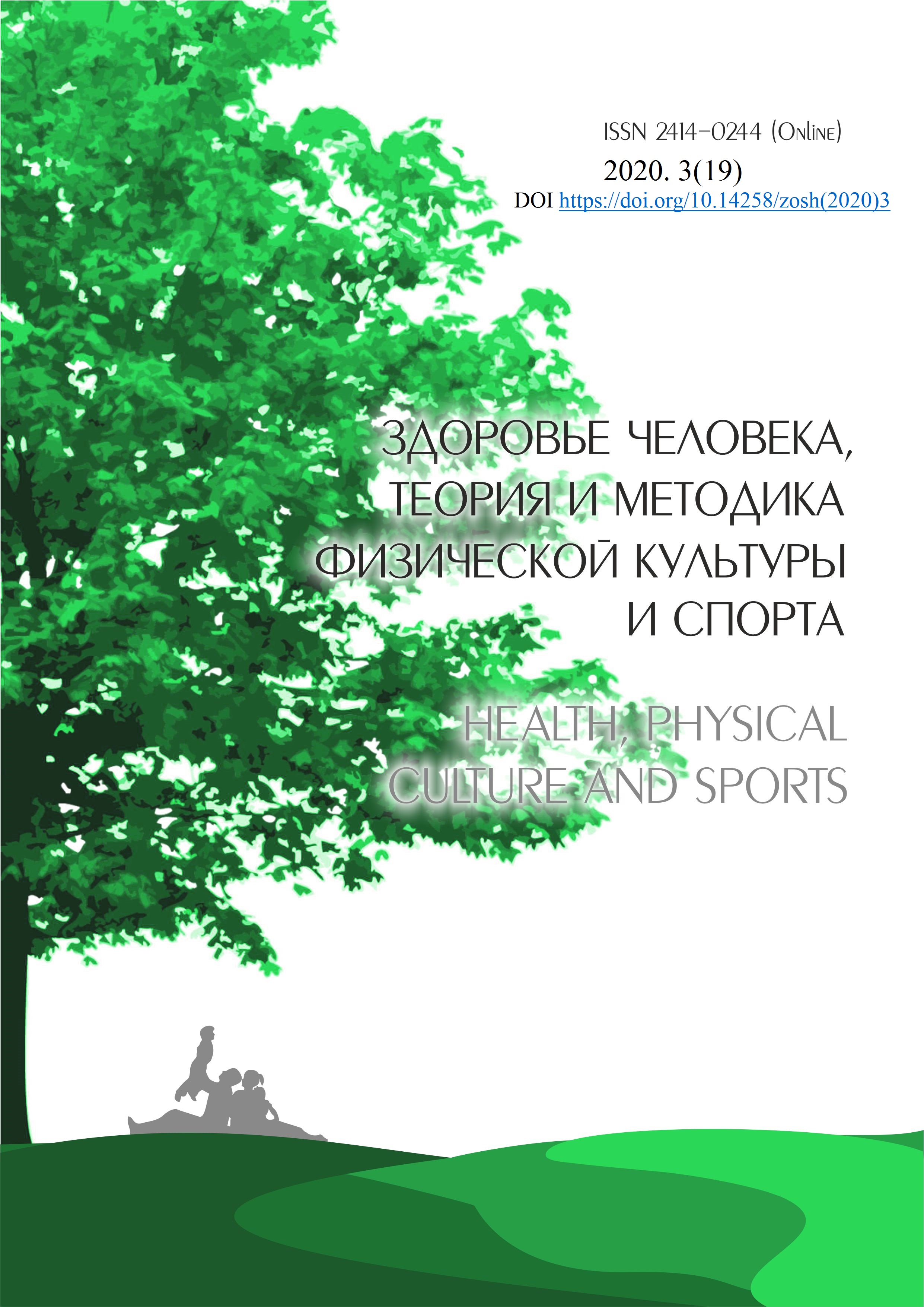The relevance of sports nutrition during training in the gym
Abstract
Summary: This article discusses the relevance of sports nutrition for people involved in the gym, through their own research in the form of questionnaires. The definition of sports nutrition is given - this is a special group of nutritional supplements, produced mainly for people involved in sports and fitness, and professional athletes, as well as in preparation for competitions. This article will focus mainly on the nutrition of people engaged in strength training in the gym, as well as on those who prefer less heavy loads in the gym (cardio). Sports nutrition itself is necessary to restore strength after a hard workout, as well as to improve athletic performance and increase endurance. However, those who prefer more sparing workouts in the gym and resort to exercises with lighter weight, use a balanced diet, which consists of simple products, as a restoration of strength. A balanced diet is enough to achieve certain results in sports. There is a lot of information about sports nutrition, so it is not unique. There are reasons for starting to use sports nutrition (increasing the effectiveness of training, due to muscle building, trainer's advice), and reasons for refusing (fear of fakes, high price, the opinion that all sports nutrition is chemistry). From our questionnaire, it became clear that almost half of the AltSU students surveyed use a simple balanced diet, as they prefer training with low weight and therefore they do not need to recover after a hard training. To achieve any result in sports, nutrition should be balanced and contain the nutrients required by the body: carbohydrates (starch and sugar), protein (chicken, poultry, cottage cheese) and fats (nuts, avocados). The article defines each nutrient. In total, there are three types of sports nutrition - gainer, protein and amino acids. All of them are aimed at increasing muscle mass, but have their own differences, which are important to know to maintain their health. The article describes in detail each type of sports nutrition, what it is intended for and what disadvantages each of them has. For example, a gainer should not be used by people who are inclined to be overweight, because instead of losing kilograms they will get a load on the heart and other organs.
Downloads
References
2. Воронов Н.А. Роль спортивного питания в профилактике и укреплении здоровья спортсменов- курсантов / Н.А. Воронов // Эпоха науки. - Сентябрь 2019.- №19.- С. 119-122. URL: https://cyberleninka.ru/article/n/rol-sportivnogo-pitaniya-v-profilaktike-i-ukreplenii-zdorovya-sportsmenov-kursantov/viewer (дата обращения: 05.11.2019).
3. Дзгоева Ф.Х. Питание при занятиях спортом // Ожирение и метаболизм. - 2013. - №2. - С. 49-52. URL: https://cyberleninka.ru/article/n/pitanie-pri-zanyatiyah-sportom/viewer (дата обращения: 29.11.2019).
4. Епишкина Ю.М., Журавлева А.С., Рощина М.Б., Тараканова Г.И. Спортивное питание и вред от неадекватного выбора режима его употребления // Успехи в химии и химической технологии. - 2017. - №14. - С. 107-109. URL: https://cyberleninka.ru/article/n/sportivnoe-pitanie-i-vred-ot-neadekvatnogo-vybora-rezhima-ego-upotrebleniya/viewer (дата обращения: 25.11.2019).
5. Ермакова Е.Г. Спортивное питание, критерии выбора спортивного питания. Вред и польза организму занимающихся физической культурой и спортом // Международный журнал гуманитарных и естественных наук.- 2018. - №5. - С. 37-39. URL: https://cyberleninka.ru/article/n/sportivnoe-pitanie-kriterii-vybora-sportivnogo-pitaniya-vred-i-polza-organizmu-zanimayuschihsya-fizicheskoy-kulturoy-i-sportom/viewer (дата обращения: 17.12.2019).
6. Мухаметов Н.Ш. Спортивное питание в спорте и фитнесе / Н.Ш. Мухаметов // Интерэкспо гео-сибирь. 2014. №1. С.1-2. URL: https://cyberleninka.ru/article/n/sportivnoe-pitanie-v-sporte-i-fitnese/viewer (дата обращения: 19.11.2019).
7. Назарова М.В. , Бабенко Л.В. Питание спортсменов // Вестник КазНМУ. 2012. №2. С. 266- 368. URL: https://cyberleninka.ru/article/n/pitanie-sportsmenov-1/viewer (дата обращения: 08.11.2019).
8. Первушин В.В., Бакуменко О.Е. Рынок спортивного питания в России // Пищевая промышленность. 2009. №4. С. 42-44. URL: https://cyberleninka.ru/article/n/rynok-sportivnogo-pitaniya-v-rossii/viewer (дата обращения: 19.12.2019).
9. Тарасова Н.С., Лавренчук С.С., Лавренчук А.А., Беликов Р.А. Спортивное питание // Pedagogy of physical culture and sports. - 2009. - №1. - С.254- 257. URL: https://cyberleninka.ru/article/n/sportivnoe-pitanie/viewer (дата обращения: 05.12.2019).
10. Токаев Э.С., Хасанов А.А. Методология создания индивидуализированных рационов питания спортсменов // Медико-биологические проблемы спорта. 2011. №1. С. 38- 42. URL: https://cyberleninka.ru/article/n/metodologiya-sozdaniya-individualizirovannyh-ratsionov-pitaniya-sportsmenov/viewer (дата обращения: 16.11.2019).
Copyright (c) 2020 Health, physical culture and sports

This work is licensed under a Creative Commons Attribution-NonCommercial 4.0 International License.
An author should not normally publish manuscripts describing essentially the same research in multiple journals or publication venues. Such redundant publication is generally considered to constitute unethical publishing behavior, and if discovered may result in a manuscript under consideration being rejected, or a published article being retracted.
Authors of manuscripts reporting on original research should present an accurate account of the work performed, accompanied by an objective discussion of its significance. Underlying data should be represented accurately in the manuscript. The manuscript should contain sufficient detail and references to permit others to replicate the work. The fabrication of results and the making of fraudulent or knowingly inaccurate statements constitute unethical behavior and may be cause for rejection or retraction of a manuscript or published article.





